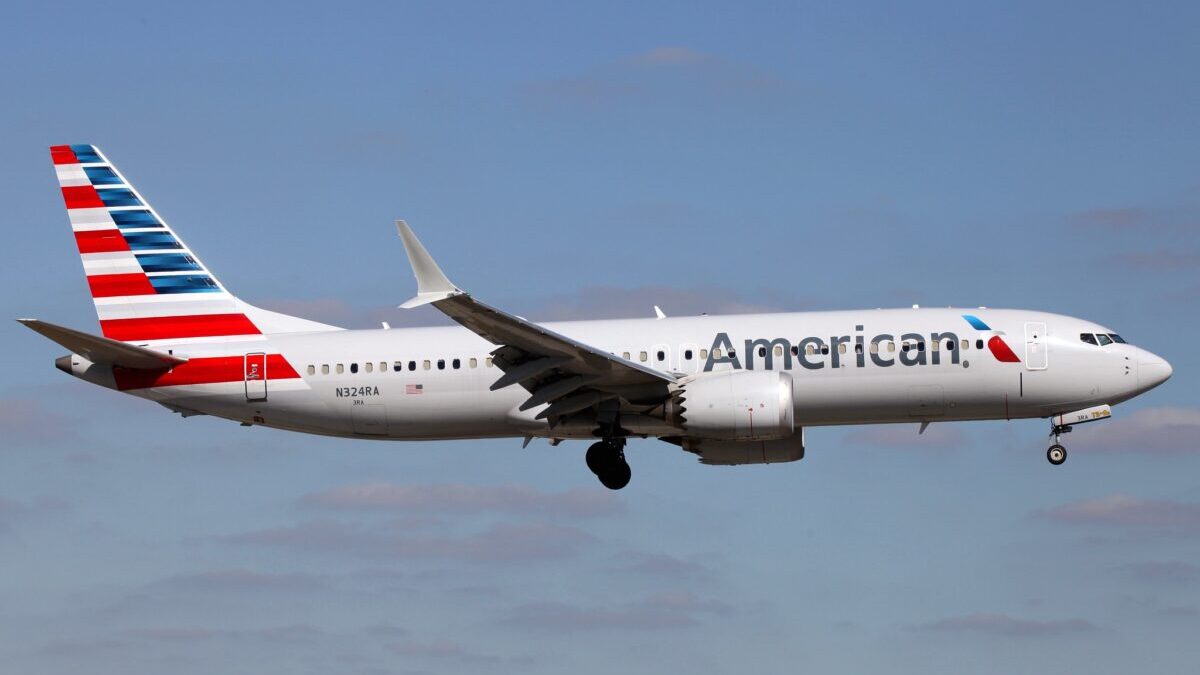The Wall Street Journal reported this week that the Federal Aviation Administration (FAA) is applying freshly heightened regulatory scrutiny to Boeing over recent quality issues and safety scares. But Boeing also finds itself beholden to the Chinese Communist Party for help liquidating old Max 8 inventory.
Last November, 400 American business leaders eagerly dined with Xi Jinping ahead of the Asia-Pacific Economic Cooperation (APEC) summit. The CEOs sought CCP agreement on various issues, such as an assurance of no more iPhone bans. But these favors don’t come for free. Xi, whose economy is cratering with failed investments, could use a bailout with the kind of money that you can only print in Washington, D.C. But why beg, when he can program a swarm of politically connected elite drone-lobbyists to go beg for him?
Nature abhors a vacuum, and many American CEOs will do whatever it takes to fill the vacuum so that China can remain whole and make good on trade promises that will enrich them personally.
One such participant was Stan Deal, Boeing’s executive vice president and CEO of its commercial airplanes division, who attended the dinner in his latest round of kowtowing to get China to buy 85 airplanes. These are the remaining 737 Max 8 aircraft that China had ordered, but Boeing had not yet built or delivered, prior to the two tragic crashes in 2018-2019 and subsequent grounding and reapproval of this fleet in 2020. The Max 8 saga is an old story but continues to inch toward its politically fraught conclusion, with China positioned to determine its fate.
Bad Design
The original Max 8 design yields a troubling engineering development pattern. In response to Airbus’ popular, fuel-efficient A320 Neo unveiled in 2016, Boeing wanted to roll out a competitive product reusing the legacy 737 airframe to avoid pricy “new airplane” requirements — a corporate-driven directive. However, retrofitting the massive Leap engine onto the legacy airframe revealed a potential new safety issue. The design team decided to mitigate the perceived issue via an aggressive new automation system that would autonomously take control of the aircraft based on sensor feedback. Dual sensors effectively became a single sensor (a critical safety issue on any system).
Disregarding the Frankenstein’s monster that resulted from its corporate pressure, Boeing deliberately marketed and delivered the new model as a minor upgrade. Boeing left critical information about the major changes out of the user manual, which the FAA uses to gauge the complexity of design updates. This omission allowed Boeing to deliver simplified desktop training, rather than in-depth simulator training required for major updates and new designs. All of these decisions were designed to save cost and time at the expense of safety. The origin story itself is a nightmare to anyone who has worked on a complex system design.
According to the 2022 documentary “Downfall: The Case Against Boeing,” a profit-driven agenda had been creeping into the previously safety-first Boeing culture since its 1996 acquisition by McDonnell Douglas. An eye-opening internal document confirms both a coercive corporate environment and memory-holed Max 8 engineers’ concerns. Boeing’s iconic culture and quality had been hollowed out; poor business decisions and shortcuts filled the void from which safety and quality engineering had been driven by new management.
In November 2020, after 20 months and rounds of design updates, Boeing received recertification approval from the FAA for the 737 Max 8. On Jan. 7, 2021, President Trump’s Department of Justice fined Boeing $2.5 billion for “conspiracy to defraud the United States.” Nearly all the Max 8s are flying again — but China is still holding out.
CCP’s Approach to the Aviation Industry
The international commercial aviation industry is a nuanced environment. New aircraft fleets are subject to strenuous testing, inspection, and continuous scrutiny not just by the FAA, but by every other nation’s independent aviation authorities — including the Civil Aviation Administration of China (CAAC) — though foreign aviation authorities usually defer to the origin country’s authority, and to the FAA generally. Selling aircraft to China is a labyrinthine ordeal, as sales must be approved by both the airline and the CCP. And particularly vexing to industries with long production lead times such as aircraft, orders are more of a handshake agreement and can be withdrawn with little enforceable recourse before the product is built and delivered. The CCP has exercised each of these options against Boeing.
In an age of declared unrestricted warfare, an Achilles heel is a goldmine to a beta enemy who seeks to execute low-cost, non-kinetic attacks to draw down momentum and morale. Unrestricted warfare victories can be as simple as an insult, embarrassment, or stymying of the enemy in commerce or in public opinion — it all counts toward the score.
Consider the following “commercial aviation warfare” points China has already scored from this situation: The CAAC was the first authority in the world to unilaterally ground this aircraft and the last authority to un-ground it, 13 months after the FAA cleared it. Various Chinese airlines purchased 300 competitor A320s during the same period. Meanwhile, China developed and certified its own competitor aircraft, the COMAC C919, in 2022.
Has the CCP blocked Boeing out of its domestic market under the guise of the initial safety issues? Xi doesn’t need to buy the leftover Max 8s now, and no one else wants them. They are a CCP pocket ace, whose value grows proportionately with Boeing’s desire to correct its balance sheet and appease its stakeholders. Do we really think Xi will resolve the matter easily? Or will he let it fester until the conditions are correct?
Playing into Xi’s hand, Boeing publicly blames Xi’s unwillingness to accept the aircraft on America’s foreign policy toward China. Following Xi’s visit last fall, Deal is likely to continue the backdoor influencing, perhaps with stronger or more specific demands uploaded to him by Xi at the dinner. Leveraged foreign policy seems to be the only collateral with which the planes will be purchased. If the planes get sold, we will know a lobbying deal went down in D.C. — we would just need to find out what it was.
It is not a good look for any American company to beg another country’s political leader for favor, such as we saw with the nauseating rounds of standing ovations at the pre-summit dinner. But it is especially troubling that a mega-brand such as Boeing is motivated to influence American foreign policy, using it as collateral for its own liquidity. Having executed cost-cutting measures within its commercial airplanes division, one hopes Boeing’s resulting problems will not spread to its defense, space, and security division, including all the bombers, fighter aircraft, rotorcraft, tankers, missiles, and space launch equipment that we know and love. In the most generous assessment, the maker of some of our most advanced defense systems finds itself groveling to China; at the worst, our foreign policy could be weakened to protect these defense systems.
Unfortunately, Boeing remains prostrate for now; with China enjoying the opportunity to “subdue the enemy without fighting” over and over again — a cautionary tale. Don’t be Boeing. Greed is a vulnerability to be exploited. Each decision we make determines whether we maintain our national integrity, or hollow it out more and more until America is an empty vessel ready to be filled with something foreign.









